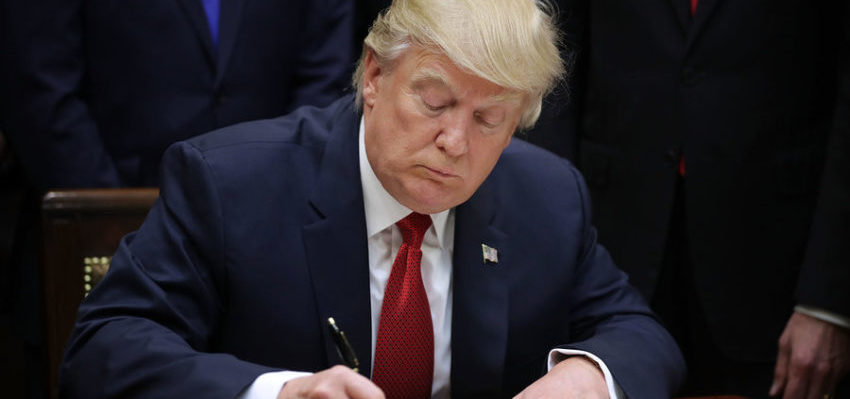
Dan O’Donnell argues that President Trump’s lawsuit in Wisconsin is incredibly well-argued and supported by state statutes.
December 3, 2020
Guest perspective by Dan O’Donnell
President Donald Trump’s attempts to demonstrate irregularities in and potentially overturn the results of last month’s presidential election have largely been met with derision, but it seems that the laughing will stop in Wisconsin. Trump campaign attorney Jim Troupis has filed a substantive, persuasive, and overwhelmingly statutorily supported petition to the Wisconsin Supreme Court that is impossible to disregard or dismiss as mere conspiracy-mongering.
The lawsuit relies not on allegations of ballot fraud or chicanery involving voting machines, but rather clear and unambiguous evidence that both the Wisconsin Elections Commission and elections officials in Dane and Milwaukee County violated state law and thus presided over an unlawful election.
In the 14 days of in-person absentee voting in Wisconsin, the suit alleges, both Milwaukee County Clerk George Christenson and Dane County Clerk Scott McDonnell allowed voters to cast ballots without first completing an absentee ballot request form.
Wisconsin Statute § 6.86(1)(ar) expressly provides that a “municipal clerk shall not issue an absentee ballot unless the clerk receives a written application therefor from a qualified elector of the municipality.” 70 of Wisconsin’s 72 county clerks apparently had no problem following this law, but both McDonnell and Christenson disregarded it altogether and allowed in-person absentee voters to cast a ballot without first filling out a ballot application.
“Instead, in both Dane and Milwaukee Counties,” the Trump campaign alleges, “the Canvassing Boards found that the Clerk’s receipt of form EL-122 (the ‘Envelope’ in which the absentee ballot is placed by the elector after it has already been received by the elector and after it has been completed) was sufficient to satisfy the statutory written application requirement.”
It most certainly is not. Nonetheless, 108,947 ballots were cast in Milwaukee County and 61,193 were cast in Dane County without a valid ballot request form and are thus invalid. Wisconsin Statute § 6.84(2) explicitly holds that statutes governing ballot applications “shall be construed as mandatory” and that “ballots cast in contravention of the procedures specified in those provisions may not be counted.”
Additionally, “ballots counted in contravention of the procedures specified in those provisions may not be included in the certified result of any election.” This means that under Wisconsin law, all 170,140 in-person absentee ballots cast in Milwaukee and Dane Counties should not have been counted and cannot be included in Wisconsin’s certified election results.
While this seems a bit harsh, the plain language of the law is unambiguous and the Wisconsin Supreme Court has a duty to follow it.
So too does the Court have a duty to follow the plain meaning of Wisconsin Statute § 6.87 (6d) and disallow mail-in absentee votes whose certificates were “missing the address of a witness.”
Under Wisconsin Statute § 6.87(9), “if a municipal clerk receives an absentee ballot with an improperly completed certificate or with no certificate, the clerk may return the ballot to the elector, inside the sealed envelope when an envelope is received, together with a new envelope if necessary, whenever time permits the elector to correct the defect and return the ballot.”
In October 2016, the Wisconsin Elections Commission first decided to completely disregard this law and issued instructions to municipal clerks to try their best to figure out witness addresses and fill them out themselves. There is absolutely nothing in the Wisconsin Statutes that allows for this, yet for four years clerks have apparently been doing this.
The Trump campaign claims that in the 2020 presidential election “a total of 5,517 ballots were cast in Milwaukee (2,215) and Dane (3,302) Counties with incomplete or incorrect EL-122 Ballot Envelopes. Clerks changed the Ballot Envelopes after they had been submitted by supplying missing witness address information or Ballot Envelopes were left incomplete but nonetheless counted.”
Under Wisconsin Statute § 6.84(2), they should not have been.
Nor should the “28,395 absentee ballots [which] were counted that were improperly cast by individuals claiming Indefinite Confinement status even as there was ‘reliable information that [the]… elector no longer qualifies for the service.’”
Under Wisconsin Statute § 6.86(2), “an elector who is indefinitely confined because of age, physical illness or infirmity or is disabled for an indefinite period may by signing a statement to that effect require that an absentee ballot be sent to the elector automatically for every election.”
In March, however, both McDonnell and Christenson told voters that every single one of them qualified as “indefinitely confined” because of Governor Evers’ “Safer at Home” executive order that was in place at the time. This advice was so patently absurd and unlawful that the Wisconsin Supreme Court intervened to rebuke both McDonnell and Christenson and reaffirm that their advice was not to be followed, but the damage was already done. 122,131 voters claimed indefinite confinement ahead of the April election. An additional 49,769 claimed indefinite confinement ahead of November’s election.
Of those, roughly 31,000 voters in Milwaukee County and 15,000 in Dane County had no photo ID on file with their municipal clerk’s office, meaning that they were able to successfully get around Wisconsin’s Voter ID law. The number of voters without an ID on file who claimed indefinite confinement rose a staggering 1062% in Dane County and 854% in Milwaukee County in the past year.
Rather obviously, McDonnell and Christenson wanted voters to exploit this apparent loophole in the law and then shirked their legally mandated duty to investigate whether claims of indefinite confinement were warranted. The Trump campaign provided evidence that 28,395 voters either no longer qualify as indefinitely confined or never actually were. These votes, then, must also be disallowed.
Perhaps the most egregious flouting of Wisconsin’s elections laws occurred in the City of Madison’s “Democracy in the Park” events, when the City unlawfully worked with the Joe Biden presidential campaign to promote two illegal in-person absentee voting events in each of the city’s 206 public parks.
Wisconsin Statute § 6.855(1) holds that “the governing body of a municipality may elect to designate a site other than the office of the municipal clerk or board of election commissioners as the location from which electors of the municipality may request and vote absentee ballots and to which voted absentee ballots shall be returned by electors for any election. The designated site shall be located as near as practicable to the office of the municipal clerk or board of election commissioners and no site may be designated that affords an advantage to any political party. An election by a governing body to designate an alternate site under this section shall be made no fewer than 14 days prior to the time that absentee ballots are available for the primary.”
“Democracy in the Park” was organized long after April’s presidential primary (and after the August congressional primary), and thus was unlawful under this statute’s requirement that alternative polling locations be designated “no fewer than 14 days prior” to when absentee ballots were available for those primaries.
Just as problematically, establishing alternative ballot drop-off locations in every single one of Madison’s city parks necessarily violates the provision of this statute that requires such locations to be as “near as practicable to the office of the municipal clerk or board of election commissioners.”
Because of this, a total of “17,271 absentee ballots were improperly cast or received at ‘Democracy in the Park’ events” and should be disallowed.
Underscoring just how unlawfully those who ran Wisconsin’s presidential election behaved, the certification of the election itself violated state statutes. Just 24 hours after Milwaukee and Dane Counties finished their recount, Wisconsin Elections Commission Chairwoman Ann Jacobs rushed to Governor Evers’ office so that Evers could certify the result.
This was in direct violation of Wisconsin Statute § 7.70(5)(a), which provides that “when a valid petition for recount is filed, the commission chairperson or the chairperson’s designee may not certify a nomination, and the governor or commission may not issue a certificate of election until the recount has been completed and the time allowed for filing an appeal has passed, or if appealed until the appeal is decided.” Wisconsin Statute § 9.01(6) defines this period as “five business days.”
Under Wisconsin law, Governor Evers was not allowed to certify the results of this election, yet he did anyway. This is the perfect metaphor for the manner in which it was run. In-person absentee votes shouldn’t have been cast without a proper request form, but they were anyway. Clerks shouldn’t have filled out ballot envelopes with witness addresses, but they did anyway. McDonnell and Christenson shouldn’t have invited tens of thousands of voters to commit election fraud by falsely claiming to be indefinitely confined, but they did anyway. The City of Madison shouldn’t have run an illegal ballot harvesting operation in its parks, but it did anyway.
All of these actions clearly and unambiguously violated Wisconsin law, and all should result in the Wisconsin Supreme Court accepting the Trump campaign’s request. The plain language of the law is on the President’s side, and if the law matters at all in Wisconsin anymore, the state’s highest court will vote to uphold it.
